The following calls have been announced on the Participant Portal, within the Excellent Science pillar of Horizon 2020:
ERC Advanced Grant – this call is open and closes on 2/6/15 at 17:00 (Brussels local time)
Advanced Grants are designed to support excellent Principal Investigators at the career stage at which they are already established research leaders with a recognised track record of research achievements. Applicant Principal Investigators must demonstrate the ground-breaking nature, ambition and feasibility of their scientific proposal.
MSCA Individual Fellowship – this call is open with a deadline of 10/9/15 at 17:00 (Brussels local time)
The goal of Individual Fellowships is to enhance the creative and innovative potential of experienced researchers. Please see information about BU’s workshop and external training provided by UKRO
Future and Emerging Technologies (FET)
FET-Open – novel ideas for radically new technologies (Research & Innovation Action) – this call is open with a closing date of 29/9/15 at 17:00 (Brussels local time)
Supporting a large set of early stage, high risk visionary science and technology collaborative research projects is necessary for the successful exploration of new foundations for radically new future technologies. Nurturing fragile ideas requires an agile, risk-friendly and highly interdisciplinary research approach, expanding well beyond the strictly technological disciplines. Recognising and stimulating the driving role of new high-potential actors in research and innovation, such as women, young researchers and high-tech SMEs, is also important for nurturing the scientific and industrial leaders of the future.
FET-Open – novel ideas for radically new technologies (FET Take-Up Coordination and Support Activities) – this call is open with a closing date of 29/9/15 at 17:00 (Brussels local time)
The challenge is to make Europe the best place in the world for collaborative research on future and emerging technologies that will renew the basis for future European competitiveness and growth, and that will make a difference for society in the decades to come, by actions for stimulating take-up of FET research results towards impact and innovation, in ways that are complementary to and beyond the capacity of single research projects. Examples include outreach to investors and entrepreneurs, use of unconventional channels (like NGOs or artists), or targeting of new audiences and purposes (e.g. for social innovation, global development or peace).
FET-Open – novel ideas for radically new technologies (FET Exchange Coordination and Support Activities)
The challenge is to make Europe the best place in the world for collaborative research on future and emerging technologies that will renew the basis for future European competitiveness and growth, and that will make a difference for society in the decades to come. Applicants should address structuring an emerging FET-relevant topic and the interdisciplinary communities around it. This shall include research roadmapping, stimulating learning and exchange (possibly with related initiatives worldwide) involving the appropriate range of disciplines and actors such as young researchers and high-tech SMEs, and broader stakeholder engagement.
ERC Proof of Concept – this call is open with two forthcoming deadlines – Intermediate deadline: 28/5/15 and Final deadline: 1/10/15, both due at at 17:00 (Brussels local time)
Frontier research often generates unexpected or new opportunities for commercial or societal application. The ERC Proof of Concept Grants aim to maximise the value of the excellent research that the ERC funds, by funding further work (i.e. activities which were not scheduled to be funded by the original ERC frontier research grant) to verify the innovation potential of ideas arising from ERC funded projects. Proof of Concept Grants are therefore on offer only to Principal Investigators whose proposals draw substantially on their ERC funded research.
COFUND Doctoral Programme – the call will open on 14/4/15 and has a deadline of 01/10/ 2015 at 17:00 (Brussels local time)
Doctoral programmes address the development and broadening of the research competencies of early-stage researchers. The training follows the EU Principles on Innovative Doctoral Training (http://ec.europa.eu/euraxess/pdf/research_policies/Principles_for_Innovative_Doctoral_Training.pdf). Collaboration with a wider set of partners, including from the non-academic sector, which may provide hosting or secondment opportunities or training in research or transferable skills, as well as innovative elements of the proposed programme, will be positively taken into account during the evaluations. Each researcher must be enrolled in a doctoral programme. Attention is paid to the quality of supervision and mentoring arrangements as well as career guidance.
COFUND Fellowship Programme – the call will open on 14/4/15 and has a deadline of 01/10/ 2015 at 17:00 (Brussels local time)
Proposed fellowship programmes are encouraged to cover all research disciplines (“bottom-up”), but can also focus on specific disciplines. In this case the range of covered disciplines should allow reasonable flexibility for the researchers. Programmes that prioritise specific research disciplines based on national or regional Research and Innovation Strategies for Smart Specialisation (RIS3 strategies) will also be supported.
For further information on EU and International funding calls, please contact Paul Lynch or Emily Cieciura in the RKEO Funding Development Team
 are all closing after April 2015. If you are thinking of applying to any of these calls, please contact RKEO Funding Development Team as soon as you are able, so that we can help you with your submission.
are all closing after April 2015. If you are thinking of applying to any of these calls, please contact RKEO Funding Development Team as soon as you are able, so that we can help you with your submission.





 We have been commissioned by the Centre of Workforce Intelligence funded by the Department of Health, to model the future demand of the health and social care workforce over the next 30 years. Professor Keith Brown and Emily Rosenorn-Lanng were invited to participate in the Elicitation workshop facilitated by DoH with a host of Social Care Workforce leaders and specialists to look at the current and future impacts on the workforce and what this may be more care planning in the future. Emily in particular sourced and analysed the national data for the level of demand and availability of the current workforce.
We have been commissioned by the Centre of Workforce Intelligence funded by the Department of Health, to model the future demand of the health and social care workforce over the next 30 years. Professor Keith Brown and Emily Rosenorn-Lanng were invited to participate in the Elicitation workshop facilitated by DoH with a host of Social Care Workforce leaders and specialists to look at the current and future impacts on the workforce and what this may be more care planning in the future. Emily in particular sourced and analysed the national data for the level of demand and availability of the current workforce. We were commissioned by the London Borough of Enfield to evaluate their Making Safeguarding Personal Strategy in order for them to apply for Gold Standard status from the Local Government Association. Dr Gary Barrett and Sarah Wincewicz were invited to spend time with the teams at Enfield to explore safeguarding practice. As part of this work we are collaborating with Enfield and other local authorities to create a Safeguarding App, which will allow practitioners to access the most current safeguarding information on a mobile device.
We were commissioned by the London Borough of Enfield to evaluate their Making Safeguarding Personal Strategy in order for them to apply for Gold Standard status from the Local Government Association. Dr Gary Barrett and Sarah Wincewicz were invited to spend time with the teams at Enfield to explore safeguarding practice. As part of this work we are collaborating with Enfield and other local authorities to create a Safeguarding App, which will allow practitioners to access the most current safeguarding information on a mobile device.

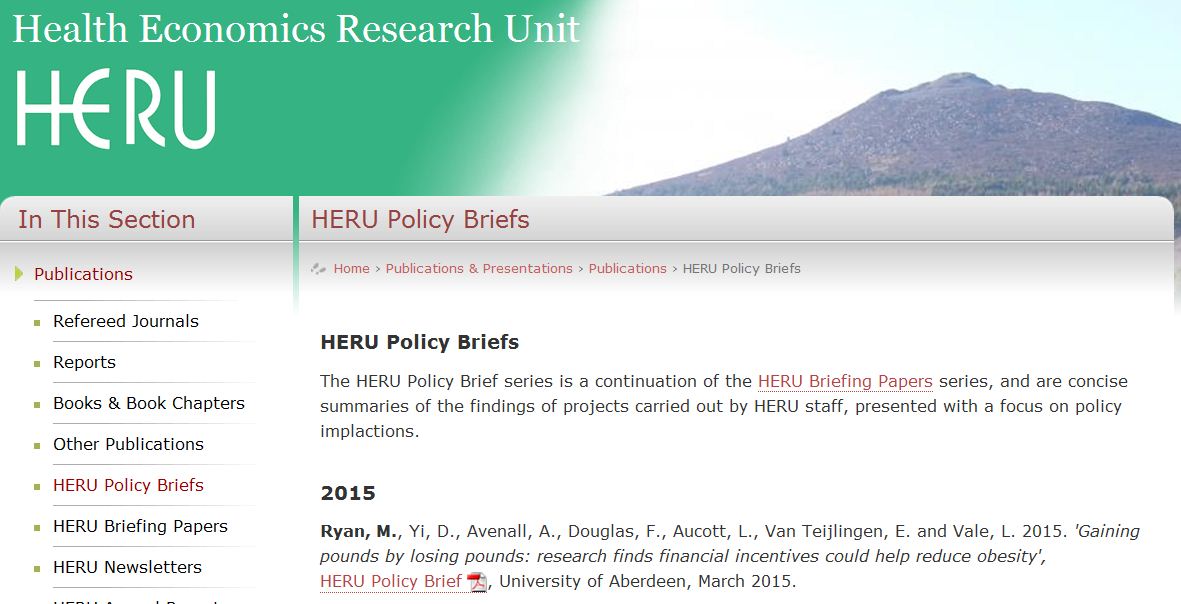
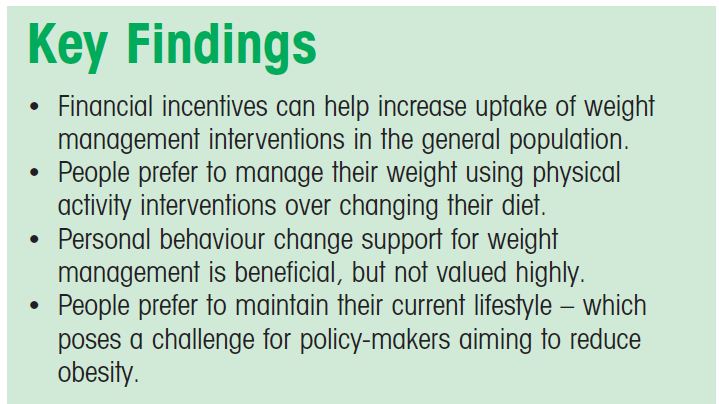


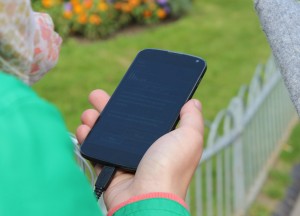
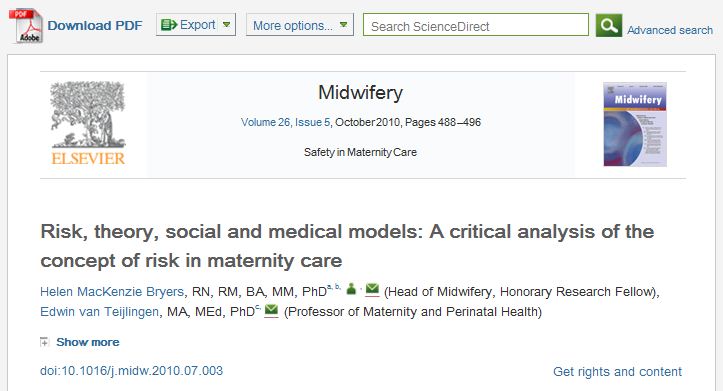












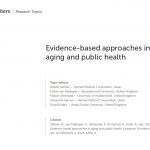 New eBook published in April
New eBook published in April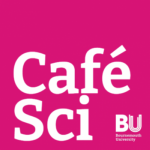 Café Scientifique Tuesday 4 June 2024 – How can we become more resilient in the face of multiple risks and hazards?
Café Scientifique Tuesday 4 June 2024 – How can we become more resilient in the face of multiple risks and hazards? MSCA Postdoctoral Fellowships 2024
MSCA Postdoctoral Fellowships 2024 Horizon Europe News – December 2023
Horizon Europe News – December 2023